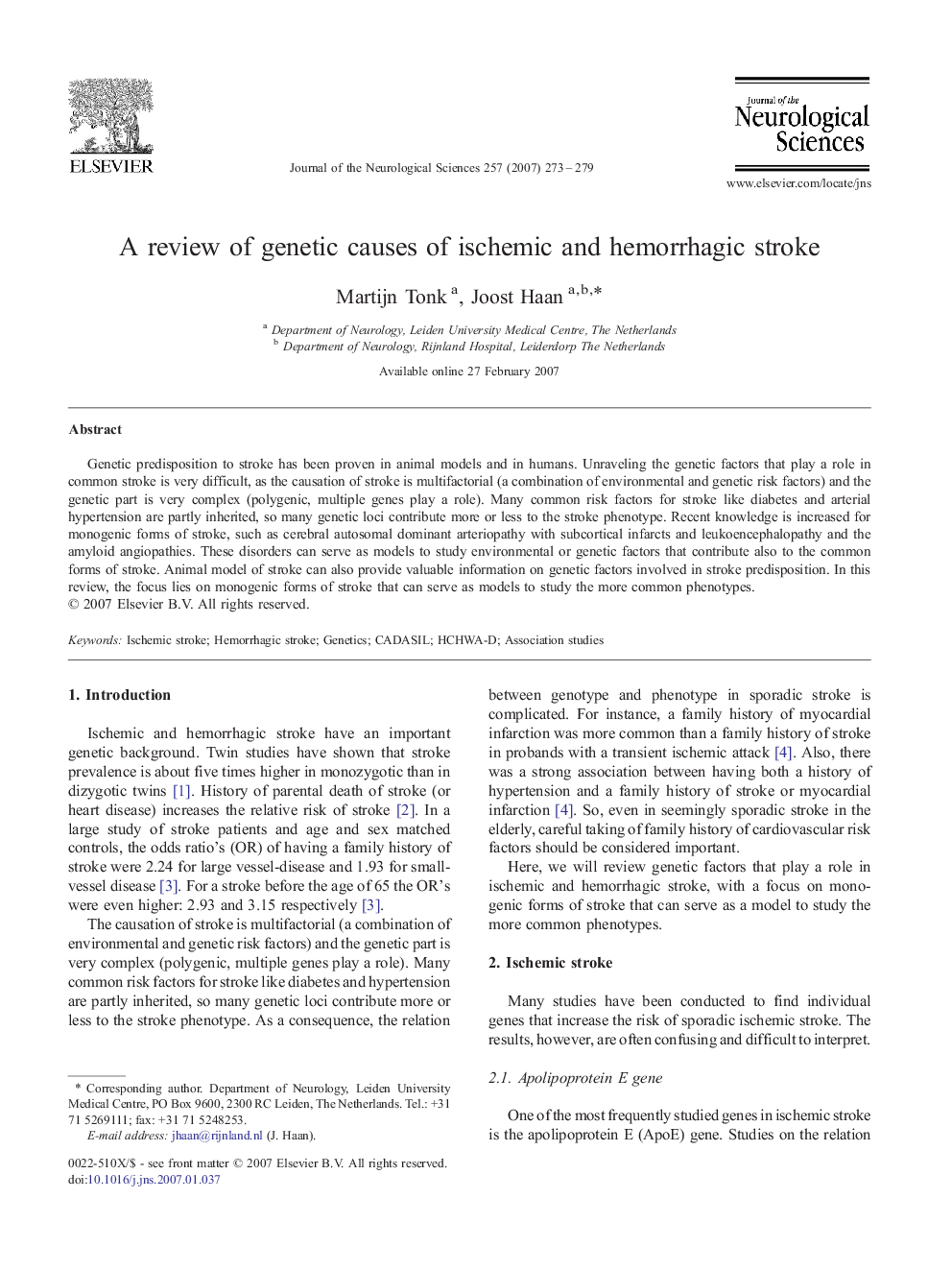| Article ID | Journal | Published Year | Pages | File Type |
|---|---|---|---|---|
| 1916297 | Journal of the Neurological Sciences | 2007 | 7 Pages |
Genetic predisposition to stroke has been proven in animal models and in humans. Unraveling the genetic factors that play a role in common stroke is very difficult, as the causation of stroke is multifactorial (a combination of environmental and genetic risk factors) and the genetic part is very complex (polygenic, multiple genes play a role). Many common risk factors for stroke like diabetes and arterial hypertension are partly inherited, so many genetic loci contribute more or less to the stroke phenotype. Recent knowledge is increased for monogenic forms of stroke, such as cerebral autosomal dominant arteriopathy with subcortical infarcts and leukoencephalopathy and the amyloid angiopathies. These disorders can serve as models to study environmental or genetic factors that contribute also to the common forms of stroke. Animal model of stroke can also provide valuable information on genetic factors involved in stroke predisposition. In this review, the focus lies on monogenic forms of stroke that can serve as models to study the more common phenotypes.
